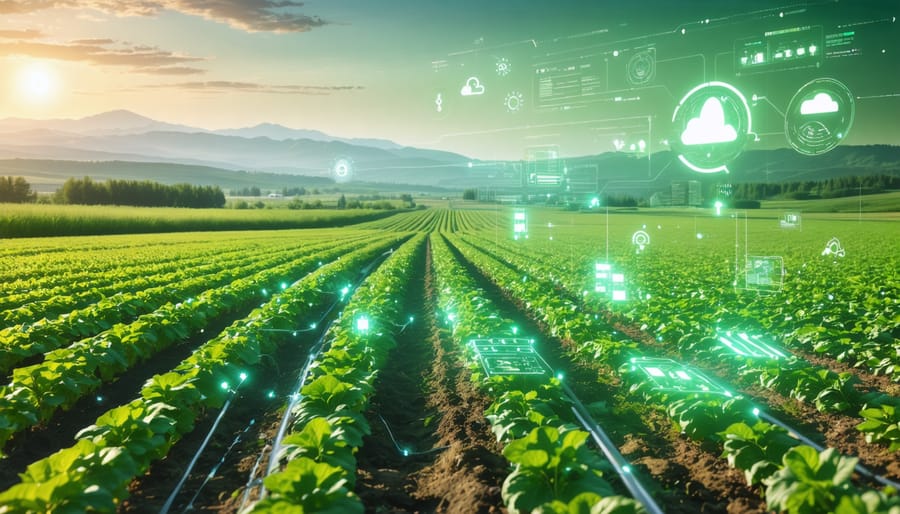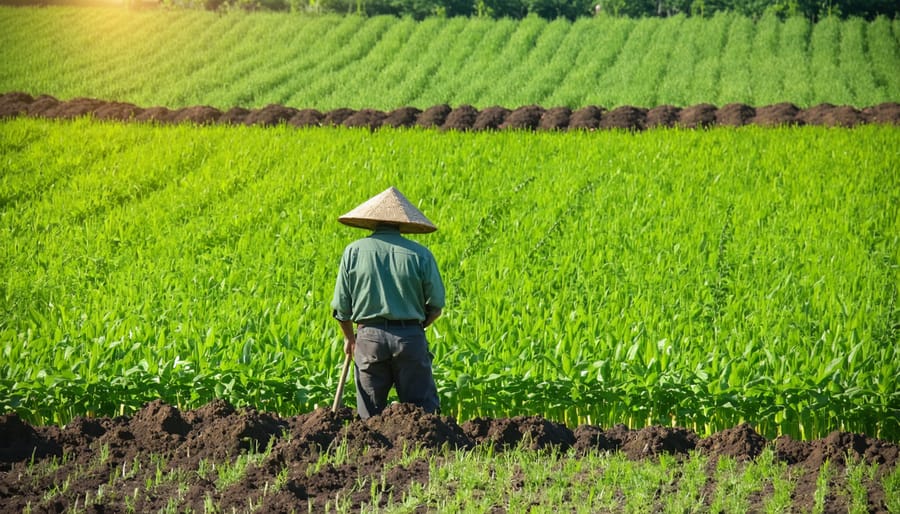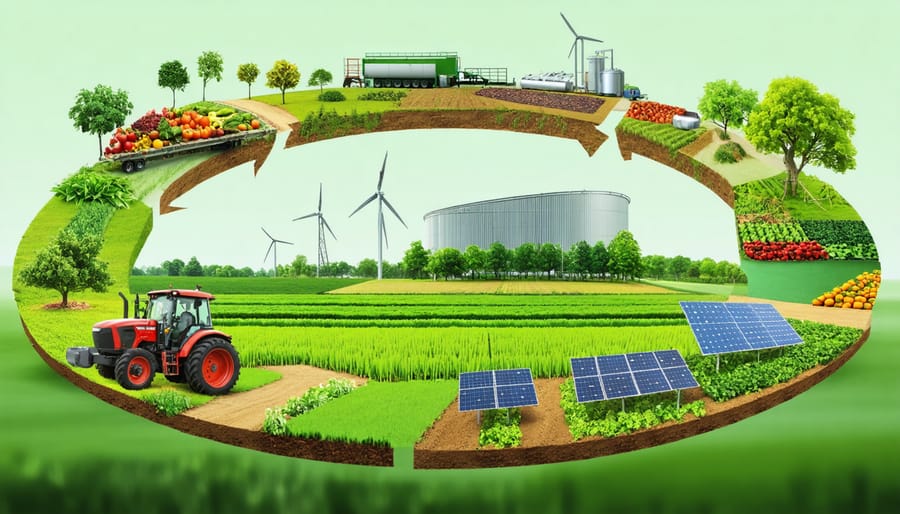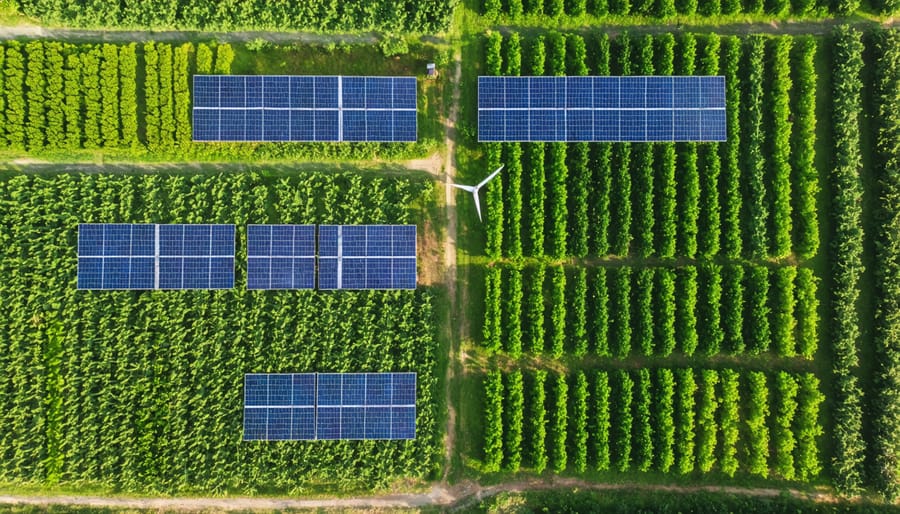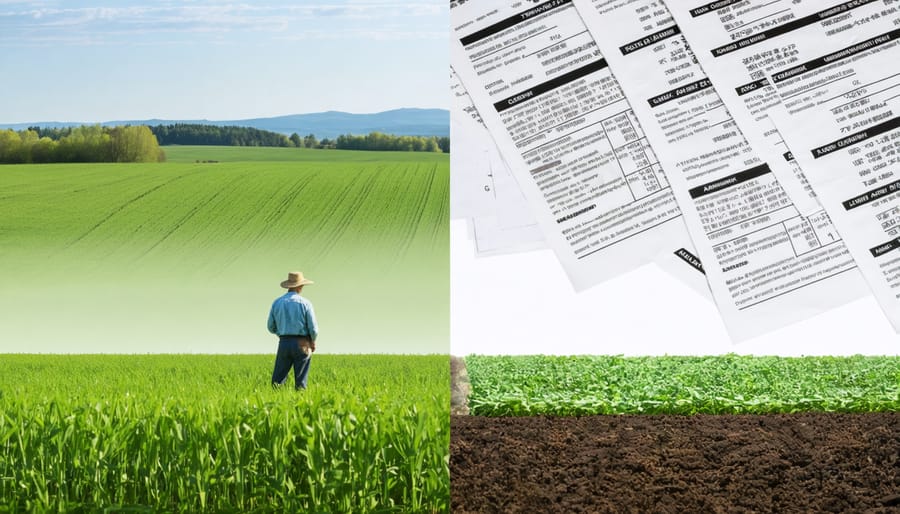What Does a Precision Farming Technician Do?
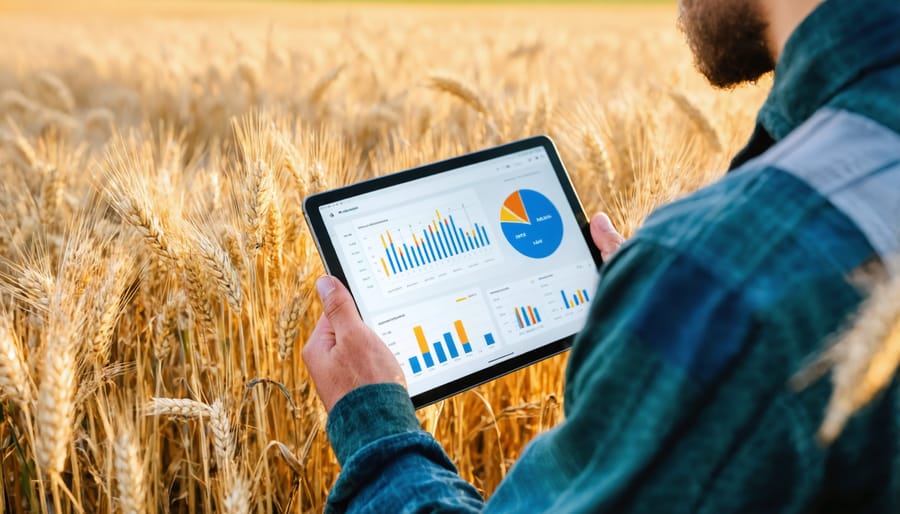
Data Collection and Analysis
Precision farming technicians employ a variety of cutting-edge tools to collect and analyze data crucial for optimizing agricultural practices. They utilize GPS-enabled sensors, drones, and satellite imagery to gather detailed information about soil moisture, nutrient levels, crop health, and weather patterns. This data is then processed using specialized software and machine learning algorithms to generate actionable insights and recommendations for farmers. By leveraging these innovations, technicians can create precise maps of fields, identifying areas that require specific attention or treatment. This enables farmers to apply inputs such as water, fertilizers, and pesticides more accurately and efficiently, reducing waste and minimizing environmental impact. Additionally, technicians monitor crop growth and yield potential throughout the season, allowing for timely interventions and informed decision-making. The data collected and analyzed by precision farming technicians empowers farmers to adopt more sustainable and profitable practices, ultimately contributing to the resilience and success of Canadian agriculture, particularly in regions like Alberta.
Equipment Management
Precision farming technicians are responsible for the smooth operation and maintenance of specialized equipment used in precision agriculture. They ensure that precision farming tools, such as GPS-guided tractors, variable rate applicators, and yield monitors, are properly calibrated and functioning optimally. This involves regular equipment checks, software updates, and troubleshooting any issues that arise. Technicians also train farmers and their staff on the correct use and care of precision farming equipment, emphasizing safety and efficiency.
In addition to routine maintenance, precision farming technicians analyze data collected by the equipment to identify areas for improvement. They collaborate with farmers to interpret the data and make informed decisions about crop management, such as adjusting fertilizer application rates or identifying areas of pest infestation. By keeping precision farming equipment in top condition and leveraging the data it provides, technicians help farmers optimize their operations, reduce waste, and improve overall sustainability. Their expertise is invaluable in ensuring that farmers can fully benefit from the advanced technologies available in modern agriculture.
Benefits of Precision Farming for Canadian Agriculture

Increased Efficiency and Productivity
Precision farming technicians play a crucial role in optimizing resource use and boosting crop yields. By utilizing advanced technologies such as GPS, remote sensing, and variable rate application, they can gather and analyze data on soil conditions, plant health, and weather patterns. This information allows farmers to make data-driven decisions, applying inputs like water, fertilizers, and pesticides only where and when they are needed. As a result, precision farming helps reduce waste, minimize environmental impact, and improve overall farm efficiency.
In the Alberta region, precision farming has proven particularly beneficial for crops such as canola, wheat, and barley. By optimizing planting density, fertilizer application, and irrigation schedules based on field-specific data, farmers have seen significant improvements in yield and quality. For example, a case study from southern Alberta demonstrated that variable rate nitrogen application increased wheat yields by 15% while reducing fertilizer costs by 20%. Precision farming technicians are instrumental in achieving these results, working closely with farmers to develop customized management plans and provide ongoing support throughout the growing season. As more Canadian farmers adopt precision farming practices, the demand for skilled technicians continues to grow, making it an exciting and rewarding career path for those passionate about sustainable agriculture.
Environmental Sustainability
Precision farming technicians play a crucial role in promoting environmental sustainability in Canadian agriculture. By leveraging advanced technologies, such as GPS-guided equipment and variable rate application, they enable farmers to optimize resource usage and minimize waste. This targeted approach reduces the carbon footprint associated with agricultural practices, as less fuel is consumed during field operations and fewer inputs, such as fertilizers and pesticides, are required. Moreover, precision farming techniques contribute to improved soil health by preventing over-application of nutrients and promoting water infiltration, which enhances the soil’s ability to retain moisture and nutrients. In Alberta, precision farming technicians are at the forefront of sustainable agriculture, working closely with farmers to implement best practices that protect the environment while maintaining productivity. As more farmers in the region recognize the benefits of precision farming and consider the transition to organic production, the demand for skilled technicians who can support these efforts continues to grow. By embracing precision farming technologies and collaborating with experienced technicians, Canadian farmers can transform their operations into models of environmental stewardship, ensuring a sustainable future for generations to come.
Economic Benefits
The adoption of precision farming techniques and the integration of precision farming technicians into agricultural operations can lead to significant economic benefits for farmers and rural communities. By optimizing resource usage, reducing waste, and improving crop yields, precision farming practices have the potential to increase profitability for farmers. Studies have shown that the implementation of precision agriculture technologies can result in cost savings of up to 20% and yield increases of 10-15%.
Moreover, the growth of precision farming creates new economic opportunities in rural areas. As the demand for precision farming technicians rises, it opens up career prospects for individuals in these communities. The need for skilled professionals to install, maintain, and analyze precision farming systems can stimulate job creation and attract talent to rural regions. This, in turn, can contribute to the overall economic development and sustainability of these communities.
Additionally, by enhancing the efficiency and competitiveness of Canadian agriculture, precision farming technicians play a vital role in strengthening the sector’s position in the global market. The increased productivity and quality of crops achieved through precision farming practices can boost the export potential of Canadian agricultural products, generating further economic benefits for farmers and rural communities.
Training and Career Paths
Educational Requirements
To become a precision farming technician in Alberta, a combination of education and hands-on experience is typically required. Many technicians hold a diploma or degree in agriculture, agribusiness, or a related field from an accredited post-secondary institution. Programs such as the Agriculture Management diploma at Lethbridge College or the Bachelor of Science in Agriculture at the University of Alberta provide a strong foundation in agricultural principles, technology, and sustainability.
Specialized precision agriculture courses and certifications are also valuable for aspiring technicians. Olds College, for example, offers a Precision Agriculture – Techgronomy diploma that covers topics like GPS, GIS, remote sensing, and variable rate technology. Additionally, industry associations provide professional development opportunities and certifications in precision farming techniques.
Practical experience through internships, co-op programs, or on-farm work is crucial for developing the skills needed to succeed as a precision farming technician. Many educational programs incorporate hands-on learning opportunities, allowing students to apply their knowledge in real-world settings. Aspiring technicians can also gain experience by working with established precision farming operations or participating in research projects focused on sustainable agriculture practices.

Essential Skills and Qualities
To excel as a precision farming technician, a combination of technical, analytical, and interpersonal skills is essential. A strong understanding of agricultural practices, coupled with proficiency in using precision agriculture technology such as GPS, GIS, and remote sensing, is crucial. Analytical skills are vital for interpreting data, identifying patterns, and making data-driven decisions to optimize crop yield and resource efficiency. Effective communication and collaboration abilities are necessary to work closely with farmers, agronomists, and other stakeholders in implementing precision farming strategies. Problem-solving skills and adaptability are key, as technicians must troubleshoot issues and adjust to varying field conditions. A commitment to continuous learning is essential to stay updated with the latest advancements in precision agriculture technology and best practices. Lastly, a passion for sustainable agriculture and a desire to contribute to the success of farming communities are invaluable qualities for thriving in this role.
Career Advancement Opportunities
Precision farming technicians have a wide range of career advancement opportunities within the agricultural sector. As they gain experience and expertise, they can progress to roles such as precision agriculture specialists, farm managers, or technology consultants. Some technicians may choose to specialize in specific areas like data analysis, drone technology, or agricultural software development. With the growing demand for sustainable farming practices, precision farming technicians can also explore opportunities in research and development, working with universities, government agencies, or private companies to innovate and improve precision agriculture techniques. For those with an entrepreneurial spirit, starting a precision farming consulting business is another potential path, helping farmers across Alberta and beyond optimize their operations. As the agriculture industry continues to evolve and adopt new technologies, the career prospects for precision farming technicians are expected to remain strong, offering diverse and rewarding opportunities for growth and advancement within this dynamic field.
Real-World Examples
Here are some real-world examples showcasing the impact of precision farming technicians on Canadian farms:
In Alberta, precision farming technician Sarah Johnson helped transform Blue Sky Farms into a model of efficiency and sustainability. By implementing variable rate fertilization based on soil nutrient mapping, Sarah reduced fertilizer usage by 20% while increasing crop yields by 15%. The farm also adopted precision irrigation, saving millions of liters of water annually.
Greenfield Acres in Saskatchewan sought the expertise of precision farming technician Michael Patel to address soil erosion issues. Michael developed a comprehensive precision agriculture plan, including contour mapping, cover cropping, and targeted tillage. As a result, soil health improved significantly, with organic matter increasing by 30% over three years.
Ontario-based precision farming technician Lisa Nguyen worked with Golden Harvest Orchards to optimize their apple production. Using precision pruning techniques and remote sensing to monitor tree health, Lisa helped the orchard increase fruit quality and reduce labor costs by 25%. The orchard now serves as a showcase for precision agriculture in the region.
In a recent interview, Dr. David Lee, a leading researcher in precision agriculture at the University of Alberta, emphasized the crucial role of precision farming technicians. “These skilled professionals are the bridge between cutting-edge technology and on-the-ground implementation. Their work is transforming Canadian agriculture, making it more sustainable, efficient, and resilient.”
As these examples demonstrate, precision farming technicians are making a significant impact on farms across Canada. By combining technical expertise with a deep understanding of agriculture, they are helping farmers adopt sustainable practices, increase productivity, and remain competitive in an ever-evolving industry.
Conclusion
Precision farming technicians play a crucial role in driving sustainable agriculture practices in Canada, particularly in the Alberta region. By combining advanced technology with agronomic expertise, they help farmers optimize resource use, reduce environmental impact, and improve crop yields. As the demand for sustainable food production grows, the importance of precision farming technicians will only continue to increase. Their skills in data analysis, technology implementation, and agronomic knowledge make them invaluable assets to the agricultural community. As Canada strives to become a leader in sustainable agriculture, precision farming technicians will be at the forefront of this movement, working closely with farmers to build a more resilient and prosperous future for Canadian agriculture.


